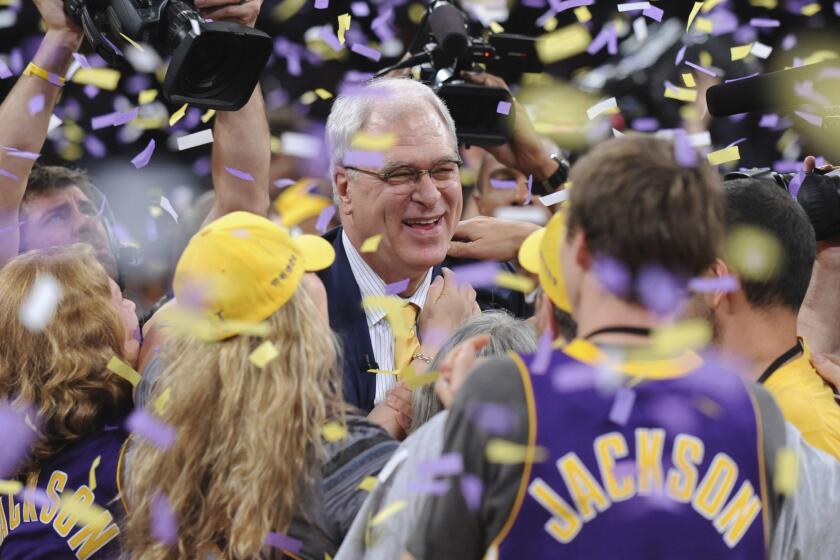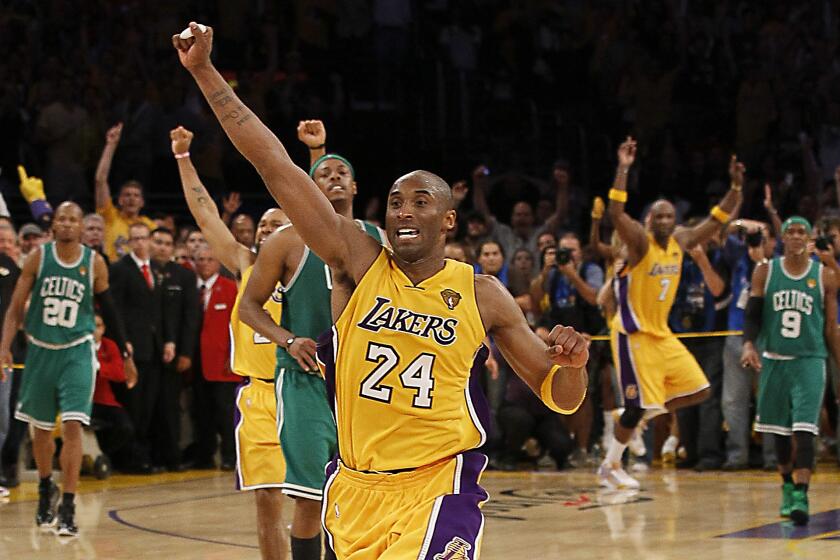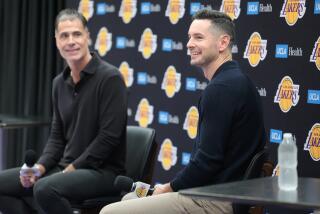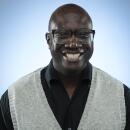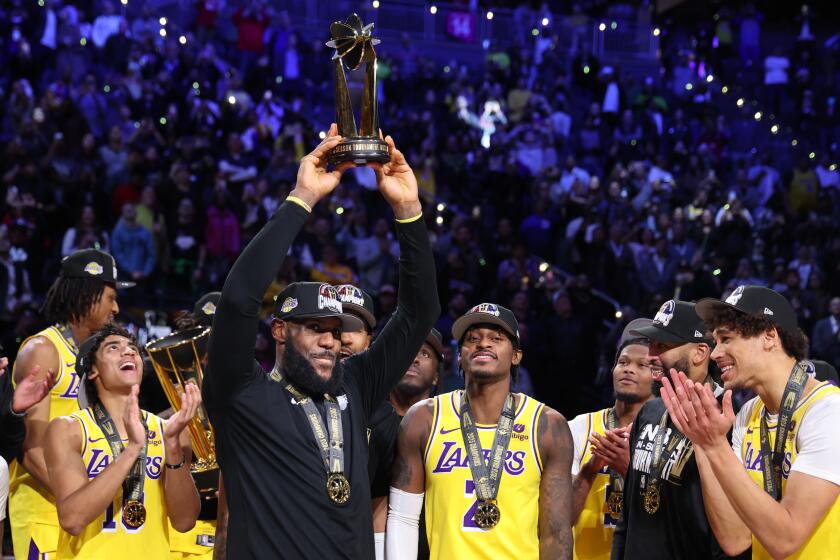How the Lakers rebuilt a champion more than a decade ago
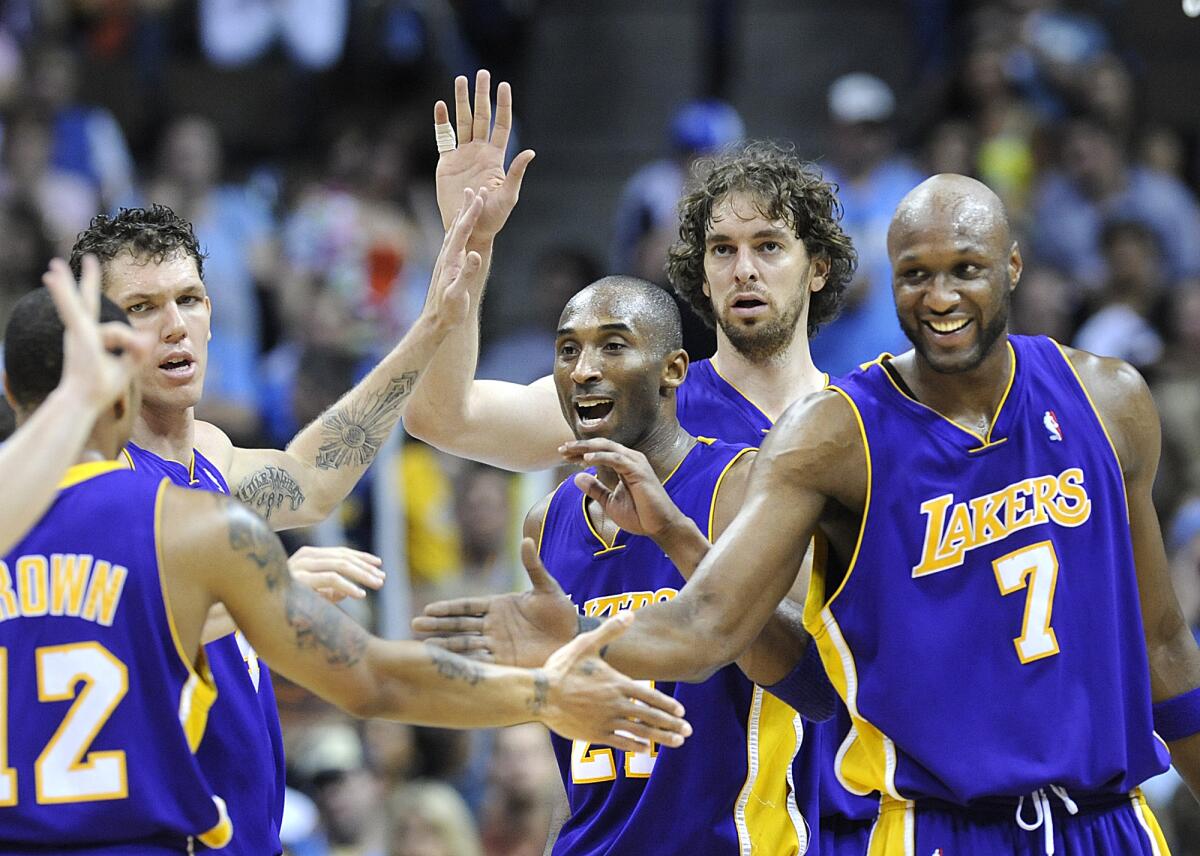
Third in a series about the 2009-10 Lakers, the last Lakers team to win an NBA title.
For much of his career Pau Gasol went back to his native Spain during the NBA offseason. In the summer of 2007, he was in the gym of a Barcelona hotel when Kobe Bryant wandered in.
“What are you doing here?” Bryant asked.
“I work out here,” Gasol said.
They didn’t know each other well, but both were in awkward phases with their teams. Gasol had talked with the Memphis Grizzlies about a possible trade, and word of that became public. Bryant had gone on a radio interview and said he’d rather play on Pluto than for the Lakers at that point.
They chatted about their situations and mused about how wonderful it would be if somehow they could play together.
“Obviously in my mind, I’m thinking there’s no way I can get traded and go to L.A.,” Gasol said. “Because in my mind I’m thinking best player for best player.”
A series of articles on the Lakers’ 2009-10 season and how the team defeated the Boston Celtics in seven games during the NBA Finals that season.
The Lakers traded for Gasol eight months later in a deal that began the second championship era of Bryant’s Lakers career. The 7-footer’s arrival marked the first time since playing with Shaquille O’Neal that Bryant felt his team had the pieces needed to win a championship.
The 2010 championship team started there, grew together and eventually got one final and critical piece that bolstered them for June.
“That was just a special, special group,” Bryant said during a podcast in 2018. “We all had special bonds. I’d never been on a team where literally everyone liked each other and respected each other to the point where we could be brutally honest with each other, argue with each other about it, and not feel personal about it. All those guys on that team, from one all the way down to 14-15, it was beautiful.”
The Shaq and Kobe era ended after three straight championships, with a Finals loss to the Detroit Pistons in 2004. The Lakers traded O’Neal to the Miami Heat, Derek Fisher left in free agency, Phil Jackson retired, and they missed the playoffs after going 34-48 the following season.
The Lakers drafted Andrew Bynum 10th overall in 2005. Jackson returned that year too, but what followed were a pair of first-round exits and a frustrated Bryant, who began revealing his irritation. He wanted a trade. He wanted Bynum traded. He ultimately stood down.
Owner Jerry Buss had told Bryant to trust him and that he’d build him a winner. The clock was ticking.
Fisher returned, the Lakers traded for Trevor Ariza in November and Bynum was getting better. Then on Jan. 14, 2008, Bynum injured his knee and general manager Mitch Kupchak began working to trade for Gasol.
Could a mismatched band of defending champions gain revenge for a 2008 Finals embarrassment against the Celtics and become eternal Lakers?
The deal took two weeks to finalize and on Feb. 1, the Lakers acquired Gasol for Kwame Brown, Javaris Crittenton, Aaron McKie, the draft rights to Pau’s brother Marc Gasol, two first-round draft picks and other considerations. Memphis was widely mocked for doing the deal. Spurs coach Gregg Popovich told reporters there should be a committee to scratch trades that “make no sense.”
It made the Lakers instant contenders.
“The day we traded for Pau, Kobe called [Jerry Buss] and said, ‘I can win a championship with this dude,’” recalled Jesse Buss, Jerry’s youngest son.
Gasol met the team in Washington, and received a visit from Bryant at 1 a.m. The next day, Kupchak watched from Los Angeles and noted a spark that had been missing for the last two weeks.
“But you don’t know. How long is it going to last?” Kupchak said. “Is it real? And it turns out it was.”
The Lakers went to the 2008 Finals and lost to the Boston Celtics in six games. They went to the 2009 Finals and beat the Orlando Magic for the franchise’s 15th championship.
That summer, Lamar Odom and Ariza entered free agency.
“We wanted [Ariza] back and we tried to do a deal quickly,” Kupchak said. “It didn’t look like it was gonna be quick. Ron Artest was right there wanting to come to Los Angeles. We just did a 180 … and secured a player that played the same position and gave us something that we felt we needed more of. Which was some toughness.”
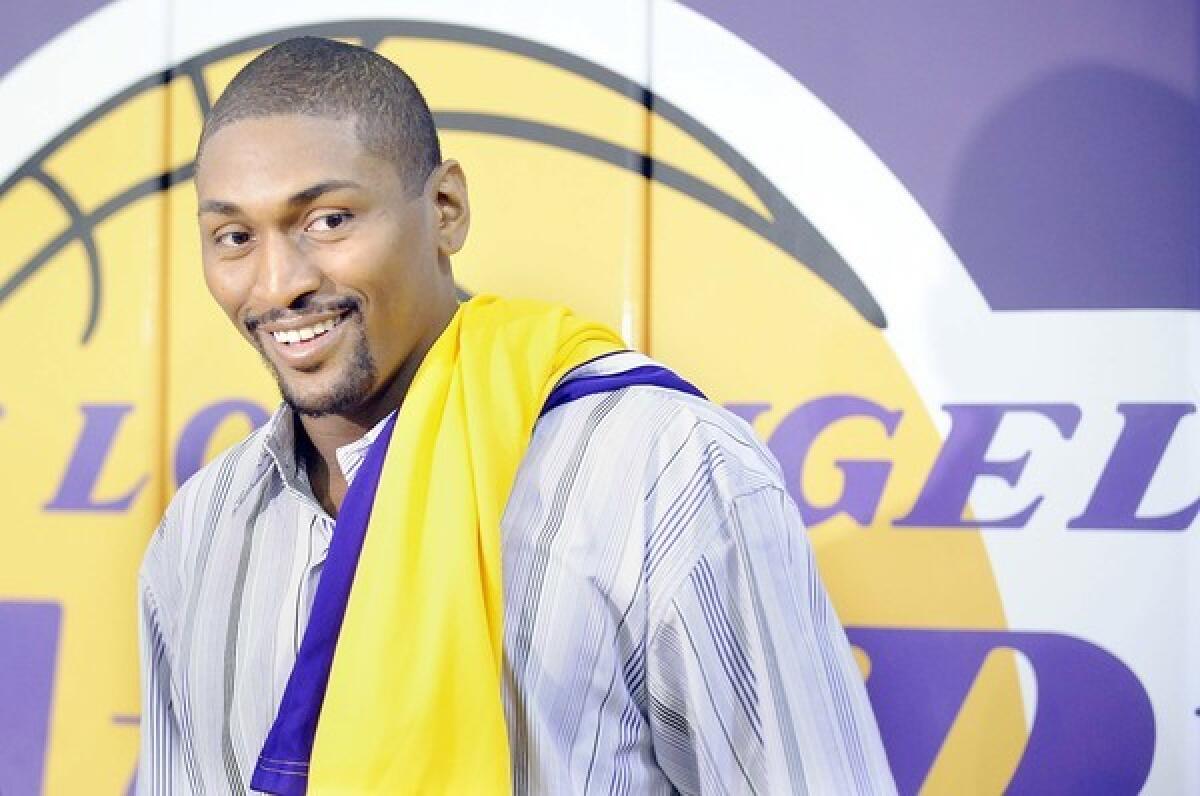
Artest, who changed his name to Metta World Peace in 2011, took a call from Kupchak as free agency opened. Magic Johnson also called him. Artest met with Jerry Buss in Westwood.
“Dr. Buss was like, Ron, I’m sorry that we’re not going to be able to pay you what you’re really worth,” World Peace said recently. “I said, Dr. Buss, whatever, don’t even worry about it.”
There were those who thought Artest would disrupt the Lakers’ chemistry.
“Our locker room was too strong,” Kupchak said. “I can’t imagine a player that we could have added to that team that would have screwed up the locker room. It was just too strong from Kobe to Fish to Lamar, to Pau.”
Artest told reporters they could blame him if the Lakers didn’t win a championship in 2010.
“I personally believed that; that’s why I said it,” he said. “And nobody said anything. Nobody said, ‘Ron don’t say stuff like that.’ I said it and that’s what I believed.”
Odom, beloved by his teammates, was the bigger problem, Kupchak said. It was imperative that the Lakers bring him back. Not until the end of July did they reach an agreement.
“Getting Ron Artest, and getting Lamar Odom back,” Kupchak said, “without those two guys we don’t beat Boston the next year.”
Tomorrow: When the Lakers were advancing to three consecutive NBA Finals from 2008-10, the West was loaded with contenders. A look back.
More to Read
All things Lakers, all the time.
Get all the Lakers news you need in Dan Woike's weekly newsletter.
You may occasionally receive promotional content from the Los Angeles Times.
